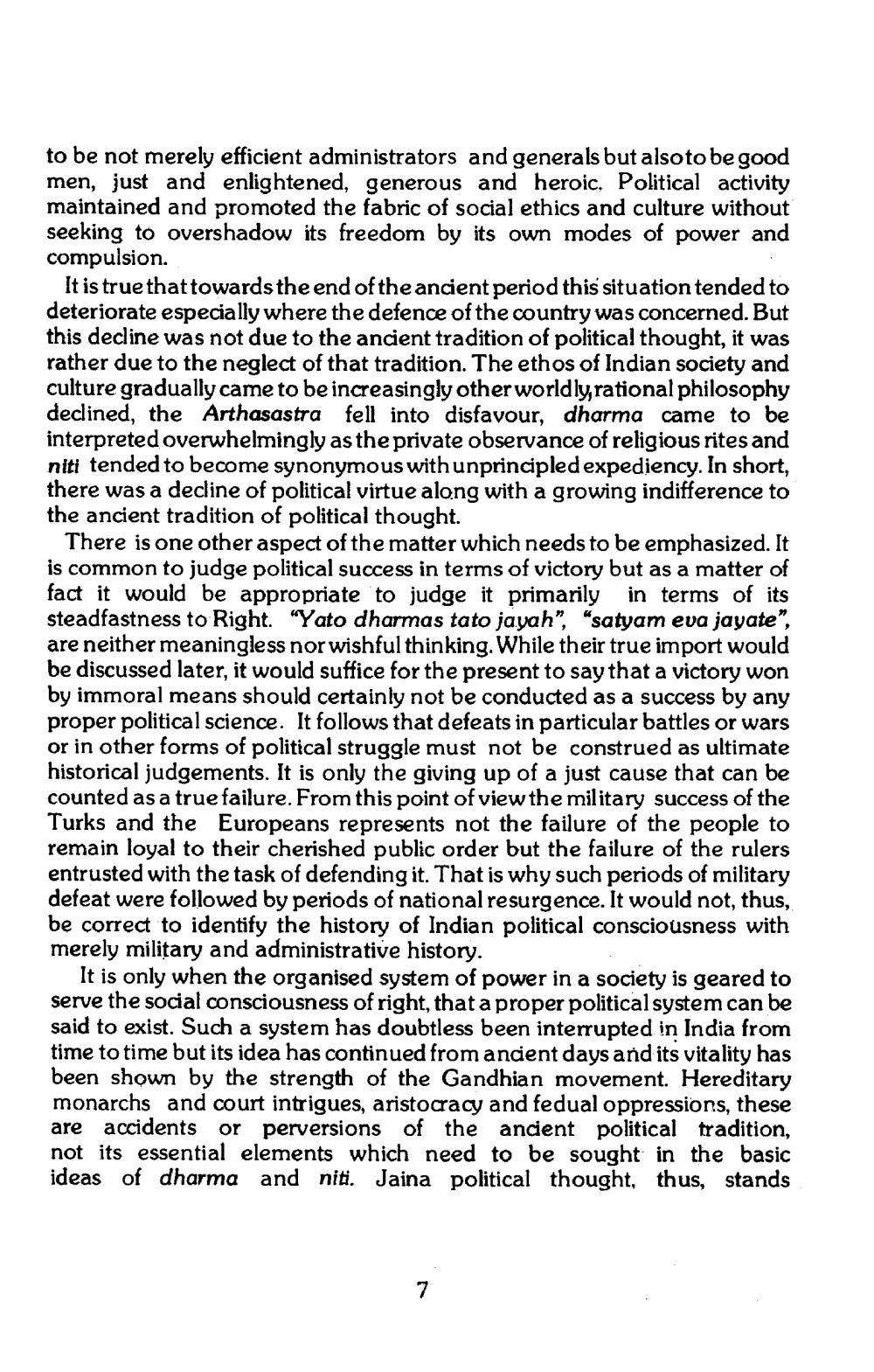________________
to be not merely efficient administrators and generals but alsoto be good men, just and enlightened, generous and heroic. Political activity maintained and promoted the fabric of social ethics and culture without seeking to overshadow its freedom by its own modes of power and compulsion.
It is true that towards the end of the ancient period this situation tended to deteriorate especially where the defence of the country was concerned. But this decline was not due to the ancient tradition of political thought, it was rather due to the neglect of that tradition. The ethos of Indian society and culture gradually came to be increasingly other worldly, rational philosophy declined, the Arthasastra fell into disfavour, dharma came to be interpreted overwhelmingly as the private observance of religious rites and niti tended to become synonymous with unprincipled expediency. In short, there was a decline of political virtue along with a growing indifference to the ancient tradition of political thought.
There is one other aspect of the matter which needs to be emphasized. It is common to judge political success in terms of victory but as a matter of fact it would be appropriate to judge it primarily in terms of its steadfastness to Right. "Yato dharmas tato jayah", "satyam eva jayate", are neither meaningless nor wishful thinking. While their true import would be discussed later, it would suffice for the present to say that a victory won by immoral means should certainly not be conducted as a success by any proper political science. It follows that defeats in particular battles or wars or in other forms of political struggle must not be construed as ulti historical judgements. It is only the giving up of a just cause that can be counted as a true failure. From this point of view the military success of the Turks and the Europeans represents not the failure of the people to remain loyal to their cherished public order but the failure of the rulers entrusted with the task of defending it. That is why such periods of military defeat were followed by periods of national resurgence. It would not, thus, be correct to identify the history of Indian political consciousness with merely military and administrative history.
It is only when the organised system of power in a society is geared to serve the social consciousness of right, that a proper political system can be said to exist. Such a system has doubtless been interrupted in India fr time to time but its idea has continued from ancient days and its vitality has been shown by the strength of the Gandhian movement. Hereditary monarchs and court intrigues, aristocracy and fedual oppressions, these are accidents or perversions of the ancient political tradition, not its essential elements which need to be sought in the basic ideas of dharma and niti. Jaina political thought, thus, stands




